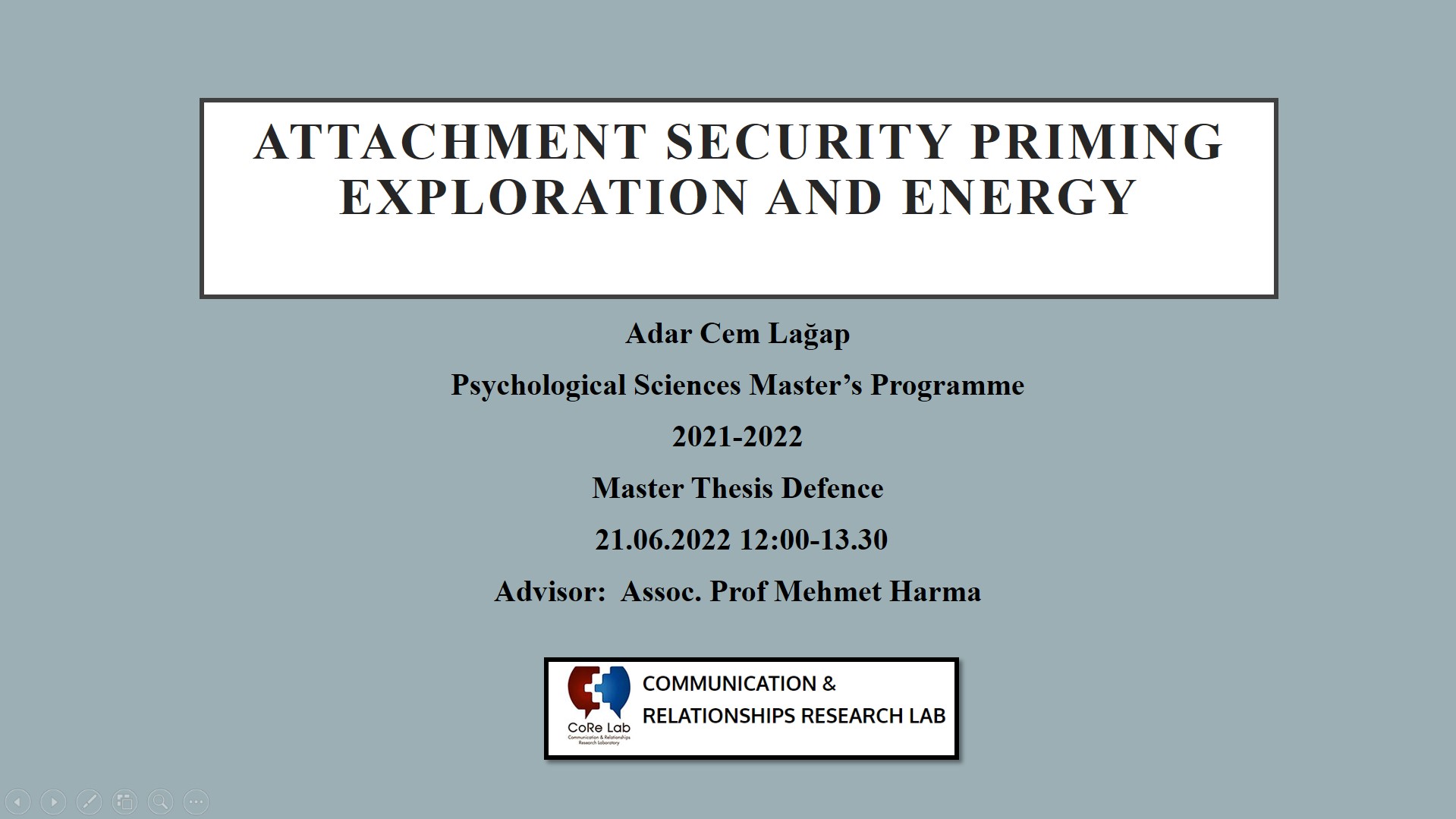

Research assistant of AGU Department of Psychology, Adar Cem Lağap, successfully defended his master's thesis titled "Attachment Security Priming, Exploration, and Energy "and graduated from the Kadir Has University Psychological Sciences Master's Program!
We congratulate Adar on his accomplishments and wish him continued success!
Adar Cem Lağap's master's thesis summary can be found below:
A study in an article by Luke, Seidikes and Carnelley (2012) reported that attachment security priming (i.e., where people are asked to remember or visualize a relationship or person in which they feel secure and easily depend) increased people's sense of security, energy and motivation to explore than the control priming condition. In line with that study, I aimed to replicate that particular study directly and conceptually by having two studies in my master's thesis. I pre-registered all the materials, procedures, analytical strategies and methodology before collecting data for the Open Science Framework Platform. According to the results of the first study in my thesis, although I found that people's sense of exploration and security significantly increased as a result of attachment security priming than control priming, unlike the original study's findings, I did not observe a significant mean difference in energy scores across priming conditions. Moreover, unlike the original study, I did not observe an indirect role of energy in explaining the relationship between security feelings and exploration motivations.
According to the results of my second study, I also consistently supported what I found in the first study. However, I observed that findings were limited to the fact that self-reports measure outcome variables (security & exploration). I did not find significant group differences in the task I created to measure exploration behaviourally, a typical puzzle frequently used in newspapers Spot the Difference across priming conditions. Furthermore, I found that how much clearer and vividly people remember or visualize during priming conditions makes a difference in outcome variables. Lastly, unlike my initial hypothesis, attachment patterns of people did not play a moderator role in the relationship between independent and dependent variables.
